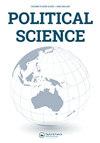拉丁美洲的选举改革
IF 1.2
4区 社会学
Q3 POLITICAL SCIENCE
引用次数: 0
摘要
发展中国家的选举规则要比巩固的民主国家灵活得多。拉丁美洲的民主国家已经尝试了一系列广泛的选举规则来选举总统和立法者。此外,改革并不局限于国家一级。在不受国家宪法约束的情况下,二级单位(如州或省)的政治家经常玩同样的游戏。在所有这些情况下,由于制度具有党派影响,改革的可能性为战略操纵创造了动机。越来越多的文献,在很大程度上受到用于检验巩固的民主国家改革的分配模型的影响,提供了一个更好的理解拉丁美洲政治家是如何制定选举游戏规则的。主要有三个方面吸引了大部分的研究关注。首先,对总统选举的研究考察了近几十年来更宽松的选举公式的采用和连任规则的改革。第二,关于立法选举的文献相当重视决定席位分配比例的规则,以及采用诸如配额和保留席位等肯定机制。第三,研究分析了谁可以投票的变化,即投票权的扩展;以及选民如何投票,即采用新的投票程序。虽然这项审查将特别侧重于新规则的采用,但它也将包括显示这些改革后果的研究。本文章由计算机程序翻译,如有差异,请以英文原文为准。
Electoral Reform in Latin America
Electoral rules have been considerably more fluid in developing than in consolidated democracies. Latin American democracies have experimented with a wide array of electoral rules to elect presidents and legislators. Moreover, reforms have not been limited to the national level. Politicians in second-level units such as states or provinces, when not constrained by the national constitution, often played the same game. In all these cases, since institutions have partisan consequences, the chance of a reform creates incentives for strategic manipulation. A growing body of literature, heavily influenced by distributive models used to examine reforms in consolidated democracies, has provided a better understanding of how politicians in Latin America craft the rules of the electoral game. Three main areas have attracted most of the research attention. First, research on presidential elections has examined the adoption of more permissive electoral formulas and the reform of reelection rules over recent decades. Second, literature on legislative elections has devoted considerable attention to the rules shaping the proportionality of the seat allocation, as well as to the adoption of affirmative mechanisms such as quotas and reserved seats. Third, research has analyzed changes in who is allowed to vote, i.e., the extension of voting rights; and in how voters cast their votes, i.e., the adoption of new voting procedures. Though this review will be specially focused on the adoption of new rules, it will also include research showing the consequences of those reforms.
求助全文
通过发布文献求助,成功后即可免费获取论文全文。
去求助
来源期刊

Political Science
POLITICAL SCIENCE-
CiteScore
0.90
自引率
0.00%
发文量
13
期刊介绍:
Political Science publishes high quality original scholarly works in the broad field of political science. Submission of articles with a regional focus on New Zealand and the Asia-Pacific is particularly encouraged, but content is not limited to this focus. Contributions are invited from across the political science discipline, including from the fields of international relations, comparative politics, political theory and public administration. Proposals for collections of articles on a common theme or debate to be published as special issues are welcome, as well as individual submissions.
 求助内容:
求助内容: 应助结果提醒方式:
应助结果提醒方式:


